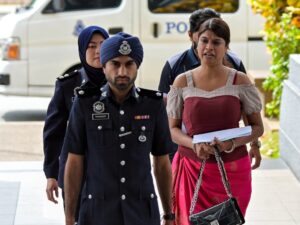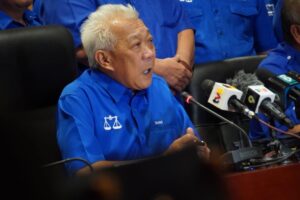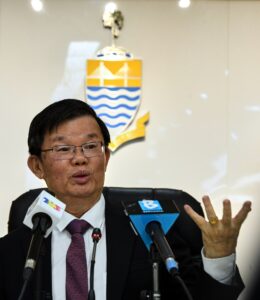KUALA LUMPUR, Sept 9 — Malaysia has marked a new milestone with the launch of its first National Action Plan on Women, Peace and Security (NAP WPS), underscoring the nation’s commitment to advancing the agenda at home and across Asean.
Deputy Prime Minister Datuk Seri Fadillah Yusof said the plan was developed under the leadership of the Ministry of Women, Family and Community Development in close collaboration with the Ministry of Defence, Foreign Ministry and other key government agencies.
“This Plan reflects Malaysia’s firm commitment to advancing the WPS agenda not only within our borders but also across Asean.
“It complements the National Women Policy 2025-2030 and responds to calls from regional and international platforms, including the CEDAW (Committee on the Elimination of Discrimination against Women), for a dedicated framework to address the specific roles, needs and contributions of women in peace and security,” he said.
Fadillah said this in his speech at the launching of the NAP WPS 2025-2030, held alongside the opening of the 2025 Women, Peace and Security Summit, here today.
Malaysia’s inaugural NAP WPS 2025-2030 lays out a roadmap to ensure women are empowered, protected and included in all aspects of peace and security.
This plan reflects a whole-of-government and whole-of-society effort to build a safer and more inclusive Malaysia.
As Asean Chair in 2025, under the theme ‘Towards an Inclusive and Sustainable Asean Community’, Fadillah said Malaysia sees WPS as part of a bigger vision.
“Inclusivity and sustainability are inseparable and must go hand in hand. Both are unattainable without the full and meaningful participation of women in shaping resilient societies and driving development.
“This is what we hope to strengthen together throughout our Chairmanship,” he added.
Meanwhile, Minister of Women, Family and Community Development Datuk Seri Nancy Shukri said the ministry has long worked to embed the spirit of the women, peace and security agenda into Malaysia’s national policies and programmes.
She also stressed the importance of cross-ministerial collaboration to ensure the WPS framework is fully integrated into the country’s broader national development and disaster response strategies.
“From strengthening protection against gender-based violence, to supporting women as leaders in community resilience, to creating spaces for women’s participation in decision-making, our efforts aim to ensure that women are not only safeguarded in times of crisis, but also empowered as agents of peace and stability.
“For example, in a flood situation, it’s not just men who respond, women are also present and they need to be represented, and women can and do play critical roles in such emergencies,” she told reporters.— Bernama




